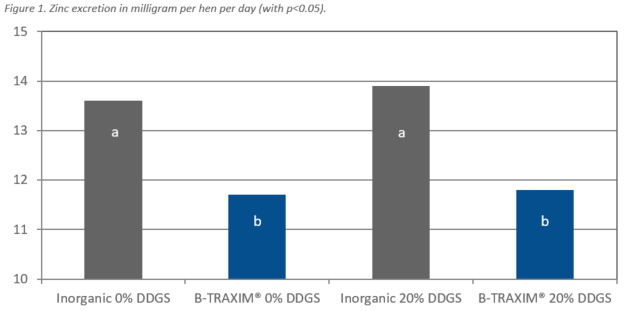



Efficient Mineral Supplementation in Laying Hens
GLOBAL - Laying hens face an impressive physiological challenge every day to produce an egg, writes Mieke Zoon.Absorbing all the required nutrients for maintenance and egg production is already a big effort. To metabolise them and make them available when needed is yet another challenge.
Minerals play an important role in optimal maintenance as components of important enzymes, and in anti-oxidant function and immunity.
Minerals are also essential for egg production. Zinc and manganese are very important for the skeletal system, which is used as a 'distribution centre' for minerals in the laying hen.
Important minerals (calcium and phosphorus) for eggshell development are stored in the bones after feeding, to be mobilised again at night when the eggshell is formed, but when the hen is not eating.
The bioavailability of minerals is limited due to the interaction with feed components and competition for absorption between them. The negative effects of these interactions can be reduced by combining the mineral with an organic ligand.
In different trials, the superior stability of a specific glycinate (minerals bound to the amino acid glycine), B-TRAXIM® 2C, has been shown in water, at different pH, in premix, in pelleted feed and even in the presence of known antagonists.
Li et al. (2014) showed that laying hens supplemented with minerals from a glycinate source excreted significantly less zinc, compared to inorganic supplementation, independent of the level of DDGS in the feed (figure 1).
The performance of the laying hens was numerically improved for both laying percentage and egg weight (about 3 per cent). This shows a higher bioavailability of minerals bound to glycine and supports a reduction in mineral supplementation in the feed, to reduce the excretion even further.









